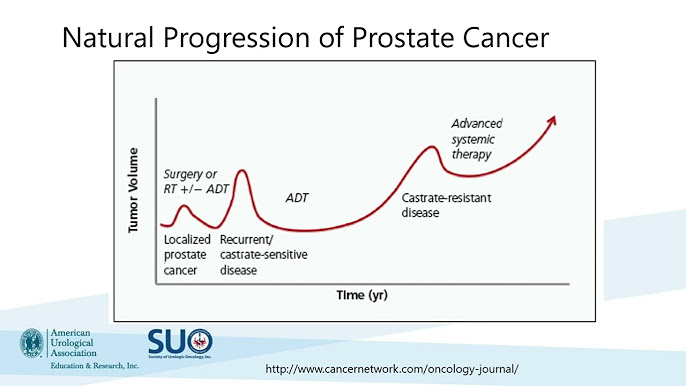What Does Best Prostate Cancer Doctor Do?
What Does Best Prostate Cancer Doctor Do?
Blog Article
Prostate Cancer Cells Treatment: Surgical and Non-Surgical Approaches Explained
When faced with a prostate cancer cells diagnosis, the range of therapy alternatives can appear frustrating. This extensive review aims to shed light on the intricacies of prostate cancer therapy, providing insights into the details of each technique to encourage people in making informed options concerning their health and wellness.
Surgical Therapy Alternatives
When taking into consideration medical therapy options for prostate cancer cells, patients and health care suppliers commonly weigh the dangers and benefits connected with various procedures. This procedure is often recommended for clients with localized prostate cancer and uses the potential for a cure.
Another surgical alternative is robotic-assisted laparoscopic prostatectomy, a minimally invasive treatment that makes use of a robotic system to aid the cosmetic surgeon in removing the prostate. This method can result in less blood loss, much shorter health center stays, and quicker healing times contrasted to typical open surgical treatment. However, it also carries the threat of problems such as infection and injury to bordering organs.
Inevitably, the option of surgical treatment for prostate cancer cells relies on numerous variables consisting of the stage of the cancer cells, the person's total wellness, and their choices pertaining to prospective side effects and recovery times. Consulting with a multidisciplinary group consisting of urologists, oncologists, and radiation oncologists can aid people make notified choices regarding one of the most ideal medical technique for their private case.

Non-Surgical Therapy Alternatives
Thinking about alternatives to medical interventions, non-surgical therapy choices for prostate cancer cells offer clients additional methods for handling the disease while decreasing possible medical risks. One non-surgical technique is Active Surveillance, where patients with low-risk prostate cancer cells are kept an eye on closely through normal check-ups, blood tests, and biopsies, without going through prompt therapy. This technique intends to prevent unnecessary treatment and its connected side results, such as urinary incontinence and impotence.
One more non-surgical alternative is Radiation Therapy, which uses high-energy rays to eliminate cancer cells (Best prostate cancer hospital in Mumbai). This therapy can be supplied on the surface utilizing an equipment (Outside Beam of light Radiation) or internally through little radioactive pellets put near the lump (Brachytherapy) Radiation treatment can be made use of as a key therapy or in mix with various other treatments, such as hormonal agent therapy
In Addition, Hormone Treatment is a non-surgical strategy that intends to minimize the levels of male hormonal agents (androgens) in the body, as these hormonal agents can fuel the growth of prostate cancer cells. By reducing or blocking androgen levels, hormone therapy can decrease cancer cells progression and soothe signs and symptoms in innovative situations.
Robotic-Assisted Surgery for Prostate Cancer

One of the key advantages of robotic-assisted surgical treatment for prostate cancer cells is its capability to minimize the risk of complications and side impacts typically associated with open surgery, such as blood loss, pain, infection, and expanded healing times. Generally, robotic-assisted surgery represents a cutting-edge technique to prostate cancer therapy that incorporates technological developments with surgical knowledge to enhance individual outcomes.
Radiation Treatment for Prostate Cancer
Utilizing sophisticated radiation technology, radiation treatment plays an important duty in the comprehensive treatment of prostate cancer cells. Radiation treatment makes use of high-energy radiation to ruin cancer cells and reduce tumors. It is an usual treatment choice for prostate cancer, either as a main treatment or in combination with surgery, hormone treatment, or radiation treatment.
There are 2 main types of radiation treatment used for prostate cancer: external beam of light radiation therapy (EBRT) and brachytherapy. These seeds release radiation that eliminates the cancer cells over time.
Radiation treatment for prostate cancer cells is highly reliable, with high treatment prices, especially for local cancer. It is also a valuable alternative for individuals that might not appropriate candidates for surgical treatment. Like any type of treatment, radiation therapy may have negative effects, such as urinary problems, fatigue, and skin inflammation, but these are often temporary and workable.
Hormonal Agent Treatment for Prostate Cancer
Hormonal agent treatment is a commonly used therapy technique for prostate cancer cells monitoring. Prostate cancer cells is frequently sustained by the male hormonal agent testosterone. Hormone therapy, also called androgen deprival therapy, aims to decrease testosterone degrees in the body or obstruct the hormone's results on the prostate cancer cells, hence reducing down the illness's development. This therapy is particularly efficient in innovative stages of prostate cancer, where surgery or radiation treatment may not suffice.
There are various sorts of hormonal agent treatment for prostate cancer, consisting of medicines that lower testosterone degrees (such as luteinizing hormone-releasing hormone agonists and antagonists), or medications that block testosterone from getting to cancer cells (like anti-androgens) Hormone treatment can be utilized alone or in mix with various other treatments like best prostate surgeon in Mumbai radiation treatment, depending upon the phase and aggressiveness of the cancer cells.
While hormone therapy can properly control prostate cancer cells growth, it may feature side effects such as warm flashes, loss of sex drive, impotence, and weakening of bones - best prostate cancer doctor. Routine monitoring and conversations with doctor are vital to handle these negative effects and make sure the treatment's effectiveness
Final Thought
In final thought, the treatment options for prostate cancer cells include surgical and non-surgical methods such as robotic-assisted surgical treatment, radiation treatment, and hormonal agent treatment. Each approach has its very own advantages and risks, and the option of therapy relies on different factors such as the phase of cancer cells and general health of the patient. It is necessary for patients to review these alternatives with their doctor to establish one of the most ideal training course of action for their specific circumstance.

Utilizing innovative radiation modern technology, radiation therapy plays a critical role in the detailed treatment of prostate cancer. It is a typical treatment alternative for prostate cancer cells, either as a key treatment or in combination with surgical procedure, hormonal agent therapy, or chemotherapy.
Radiation therapy for prostate cancer is extremely effective, with high remedy prices, especially for local cancer.Hormonal agent therapy is a generally utilized treatment technique for prostate cancer monitoring.In conclusion, the treatment alternatives for prostate cancer cells consist of surgical and non-surgical methods such as robotic-assisted surgical procedure, radiation therapy, and hormone treatment.
Report this page